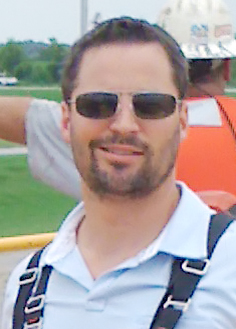Immediately after the Gulf oil spill in April, UCLA Professor Eric Hoek flew to the affected area, sailed out on a barge boat, and deployed centrifugal separators into the water.
After running the water through the centrifuge and then through the membranes he and his team had developed, he found that oil levels were virtually undetectable.
The spill was the largest in U.S. history, but it gave new centrifuge technology the chance to test itself in the wake of an environmental crisis.
Hoek was one of the people who capitalized on the opportunity.
For eight months before the spill, he had been working on refining technology to better isolate oil from water.
“We initiated a small research project at UCLA to evaluate the centrifugal separation technology for its applicability in treating oil-contaminated waters,” Hoek said in a statement.
A number of organizations tried to help with the crisis, one of which was Ocean Therapy Solutions, a company founded by actor Kevin Costner and his business partner after the spill.
Costner had been investing in oil separation technology for the past 15 years, according to the company’s website.
Hoek was introduced to Costner by a mutual friend, and has since been working with Ocean Therapy Solutions.
He has taken multiple trips to the Gulf region to personally assist with and assess the damage. Since May, he and his lab team have spearheaded research involving computer simulations for oil removal and developing oil-tolerant membranes.
While in the Gulf, Hoek demonstrated the centrifuge and membrane technology to companies, including BP.
The V20 centrifuge machines have the capacity to separate up to 210,000 gallons of water per day, and BP has already ordered 32 of them, according to a press release on Ocean Therapy Solutions’ website.
Hoek and his researchers are currently working to make their technology more commercially viable.
“This was a great project to work on. I had an opportunity to put all of my past experiences and knowledge to work on a real problem that needed a real solution, right away,” Hoek said.
Some of Hoek’s students and postdoctoral scholars accompanied him on his trip to the Gulf. Minghua Li, a postdoctoral student at UCLA, was one of the initial responders to Hoek’s requests for volunteers.
“It is an extremely rare opportunity for researchers to find out that their research projects can save the world,” Li said. “More importantly, it works.”
Ocean Therapy Solutions expects the ongoing research and development efforts at UCLA will produce commercial viable filtration systems soon.
In the future, Hoek hopes to continue working with Costner and his business partners to develop technologies like the centrifuge and membrane for environmental applications.
